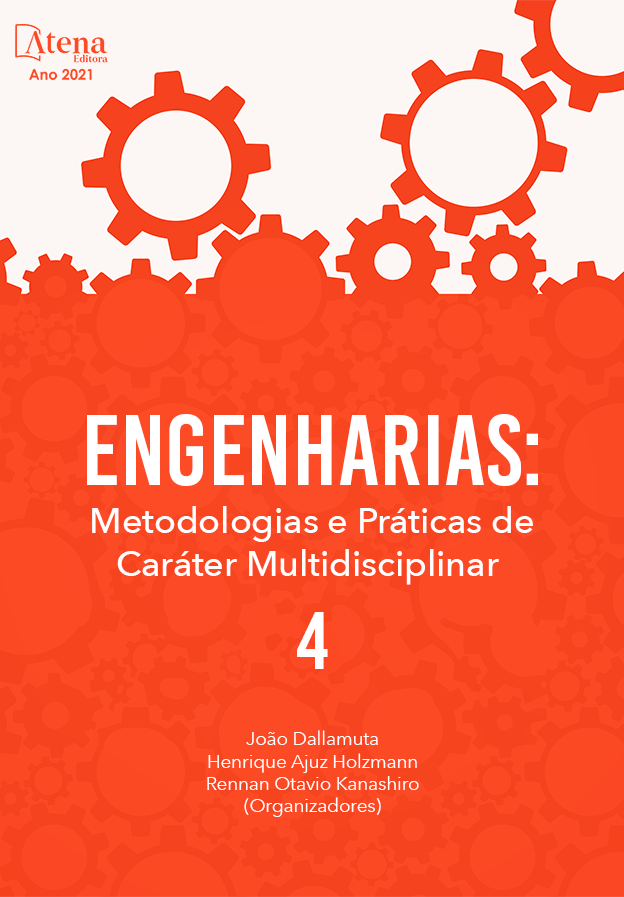
UTILIZAÇÃO DE FIBRAS DE COCO BABAÇU NA PRODUÇÃO DE CONCRETO
Mundialmente, o concreto é o material mais produzido e consumido pela indústria da construção civil. Visando o desenvolvimento sustentável e um custo menor deste material, o uso das fibras vegetais como possibilidade de reforço mecânico, tem apresentado um grande potencial de aplicação tecnológica. O objetivo deste estudo foi investigar as propriedades mecânicas dos compósitos cimentícios (concretos) reforçados por fibras de coco babaçu. Fibras tratadas alcalinamente, foram caracterizadas por difração de raios X e razão de aspecto. Concretos reforçados com adição de até 1% fibra tratada por massa de cimento, foram caracterizados pelos ensaios de Slump e Compressão Axial. Os resultados para as fibras tratadas foram comparados com os das fibras naturais, e demonstraram um aumento na cristalinidade de 17%, assim como um aumento de 10% na razão de aspecto. Isto é um indicativo da efetividade do tratamento químico, o qual pode contribuir para uma melhor interface entre fibra tratada e matriz cimentícia. Para o ensaio de Slump, o concreto convencional (CC) apresentou 6 cm de trabalhabilidade, enquanto que os concretos reforçados com 0.5% (CRF0.5%) e 1% (CRF1%) de fibras tratadas, apresentaram trabalhabilidade de 5.5 cm e 4.5 cm, respectivamente. A adição de 0.5% de fibras tratadas ao concreto, resultou em uma influência positiva para a resistência à compressão (aumento em torno de 4 MPa), em relação aos demais concretos. O uso de pequeno volume de fibras tratadas aliado a uma possível boa dispersão na mistura de concreto, pode ter contribuído para o aumento da resistência do CRF0.5%.
UTILIZAÇÃO DE FIBRAS DE COCO BABAÇU NA PRODUÇÃO DE CONCRETO
-
DOI: 10.22533/at.ed.8922110033
-
Palavras-chave: Concreto, Reforço, Fibra de coco babaçu, Trabalhabilidade, Resistencia à compressão.
-
Keywords: Concrete, Reinforcement, Babassu coconut fiber, Workability, Compressive strength.
-
Abstract:
Worldwide, concrete is the most produced and consumed material by civil construction industry. Due to the sustainable development and a lower cost of this material, the use of vegetable fibers as a possibility of mechanical reinforcement, has presented a great potential for technological application. The aim of this study was to investigate the mechanical properties of cementitious composite (concrete) reinforced by babassu coconut fibers. Alkaline treated fibers were characterized by X-ray diffraction and aspect ratio. Reinforced concrete with the addition of up to 1% fiber treated by cement mass, was characterized by Slump and Axial Compression Tests. The results for the treated fibers were compared to natural fibers, and showed an increase in crystallinity of 17%, as well as an increase of 10% in the aspect ratio. This is an indication of the effectiveness of the chemical treatment, which can contribute to a better interface between the treated fiber and the cementitious matrix. For the Slump Test, the conventional concrete (CC) showed 6.0 cm of workability, while reinforced concrete with 0.5% (CRF0.5%) and 1% (CRF1%) of treated fibers showed workability of 5.5 cm e 4.5 cm, respectively. The addition of 0.5% of treated fibers to the concrete, resulted in a positive influence on the compressive strength (increase around 4 MPa), in relation to the other concretes. The use of low volume of treated fibers combined with a possible good dispersion in the concrete mixture, may have contributed to the increase in the resistance of CRF0.5%.
-
Número de páginas: 8
- Wilson Alves Oliveira Júnior
- Maria Elayne Rodrigues Alves
- Bruna Leal Melo de Oliveira
- João Batista de Oliveira Libório Dourado
- Aluska do Nascimento Simões Braga
- Valdeci Bosco dos Santos


